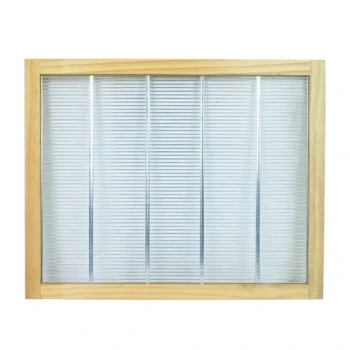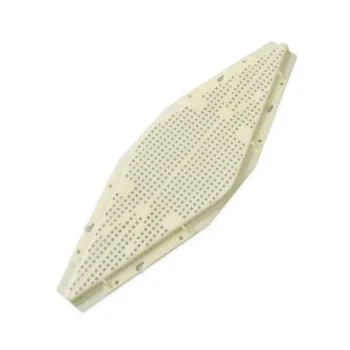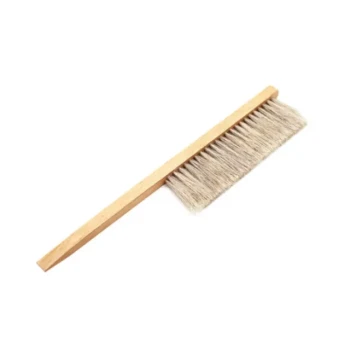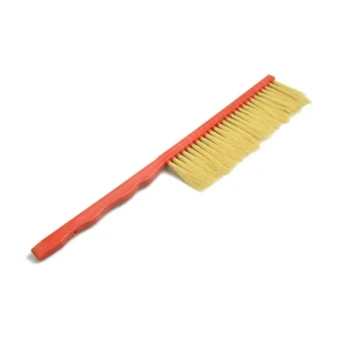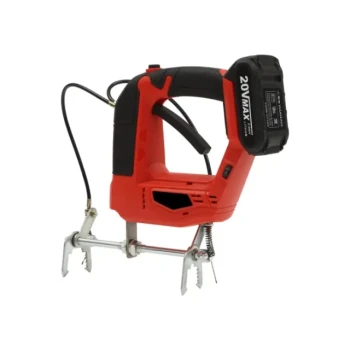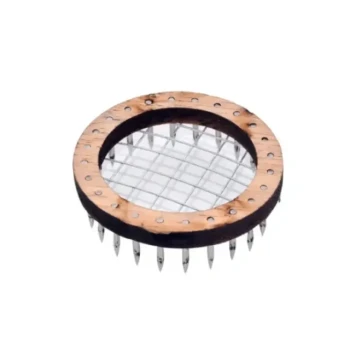The decision to use a queen excluder is a strategic choice, not a universal rule. It hinges entirely on your specific beekeeping goals, the genetic tendencies of your bees, and your management style. For beekeepers prioritizing pure, easily-harvested honey and simplified hive inspections, an excluder is a valuable tool; for others, it can be an unnecessary restriction.
A queen excluder is a tool for control. You should use one when the benefit of confining the queen to the brood boxes—ensuring brood-free honey supers—outweighs the potential downside of creating a barrier that can impede worker bee movement and slow honey production.
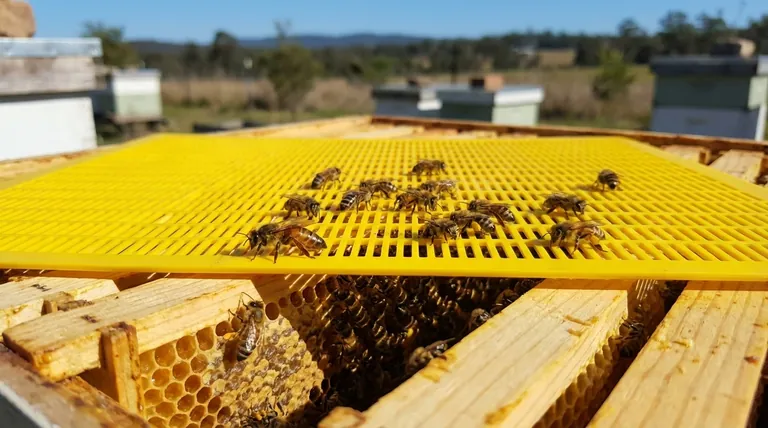
The Core Purpose of a Queen Excluder
A queen excluder is a simple barrier with gaps large enough for worker bees to pass through but too small for the larger queen. Its function is straightforward but has significant implications for hive management.
To Keep Honey Supers "Clean"
The primary reason to use an excluder is to prevent the queen from laying eggs in the honey supers.
Honey extracted from frames that have never contained brood is considered the purest and highest quality. When eggs hatch and larvae develop, they leave behind cocoons, waste, and other debris that can darken the wax and affect the final product.
To Simplify Queen Location
For many beekeepers, especially those with a few backyard hives, finding the queen is a regular and sometimes challenging task.
An excluder guarantees she is in the brood boxes below it. This dramatically simplifies inspections, requeening, and other management tasks that require locating the queen.
Key Factors in Your Decision
There is no single right answer for every hive. The correct choice comes from observing your bees and clarifying your goals.
Your Beekeeping Goal
A commercial beekeeper focused on pollination services has different priorities than a hobbyist focused on honey. The commercial operator may see excluders as an added expense and hassle, while the hobbyist sees them as essential for quality honey.
The Genetics of Your Colony
The natural behavior of your bees is a critical factor.
Colonies with locally-bred queens often maintain a tight, compact brood nest on their own, naturally separating it from their honey stores. These hives may not need an excluder.
In contrast, wild-caught or Africanized colonies can be prolific brood-producers, with the queen attempting to fill every available cell. An excluder becomes a necessary tool to manage their expansion and dedicate space for honey.
The "Personality" of the Hive
Observe your bees' behavior. A strong, populous colony will move through an excluder more readily than a weaker one.
If you find your bees are hesitant to move into the honey supers after an excluder is placed, they may be treating it as a ceiling, creating a "honey-bound" condition in the brood box.
Understanding the Trade-offs
Using an excluder is not without potential downsides. Acknowledging these trade-offs is key to making an informed decision.
It Creates a Barrier
The most obvious drawback is that the excluder is a physical barrier. Foragers must navigate through it every time they travel between the brood nest and the honey supers.
This can slow traffic, potentially leading to congestion at the excluder and a modest reduction in the rate of honey storage.
It Can Damage Bees
Worker bees, laden with nectar or pollen, can sometimes damage their wings by repeatedly squeezing through the excluder. This added wear and tear can shorten their lifespan.
Mitigating the Impact with an Upper Entrance
A common and effective technique to reduce the negative impact of an excluder is to provide a small upper entrance for the hive.
This entrance, located above the excluder, allows foraging bees to enter and exit the honey supers directly, bypassing the excluder and reducing hive congestion.
Making the Right Choice for Your Hive
Your decision should be based on observation and a clear understanding of your objectives. There is no penalty for experimenting to see what works best for your specific bees.
- If your primary focus is the purest honey and simplified inspections: Using a queen excluder is a standard and highly effective practice.
- If you manage a self-regulating colony that keeps a tidy brood nest: Observe them closely; you may find an excluder is an unnecessary intervention.
- If your goal is maximum honey production above all else: Consider forgoing an excluder, but be prepared for the queen to lay in your honey supers.
- If your bees seem reluctant to cross the excluder: Add an upper entrance to encourage them to work in the honey supers.
Ultimately, the right choice is the one that aligns with your beekeeping philosophy and the unique behavior of your bees.
Summary Table:
| Scenario | Recommended Action | Key Rationale |
|---|---|---|
| Focus on Pure Honey & Easy Inspections | Use an Excluder | Keeps honey supers brood-free, ensuring high-quality honey and simplifying queen location. |
| Managing a Self-Regulating Colony | Consider No Excluder | Some bees naturally maintain a tidy brood nest, making an excluder an unnecessary barrier. |
| Goal is Maximum Honey Production | Often Avoid Excluder | Removes a potential barrier for foragers, but the queen may lay eggs in honey supers. |
| Bees are Reluctant to Cross | Use Excluder with Upper Entrance | An upper entrance reduces hive congestion by allowing bees to bypass the excluder. |
Optimize Your Hive's Productivity with the Right Equipment
Choosing the right tools, like a queen excluder, is fundamental to successful apiary management. Whether you're a commercial apiary focused on large-scale honey production or a distributor supplying beekeepers, having access to high-quality, durable equipment is key.
HONESTBEE supplies commercial apiaries and beekeeping equipment distributors with the reliable, wholesale-focused supplies needed to support healthy, productive hives. From durable queen excluders to essential hive components, we provide the tools for success.
Ready to equip your operation for peak performance? Contact our expert team today to discuss your wholesale needs and how we can support your beekeeping goals.
Visual Guide
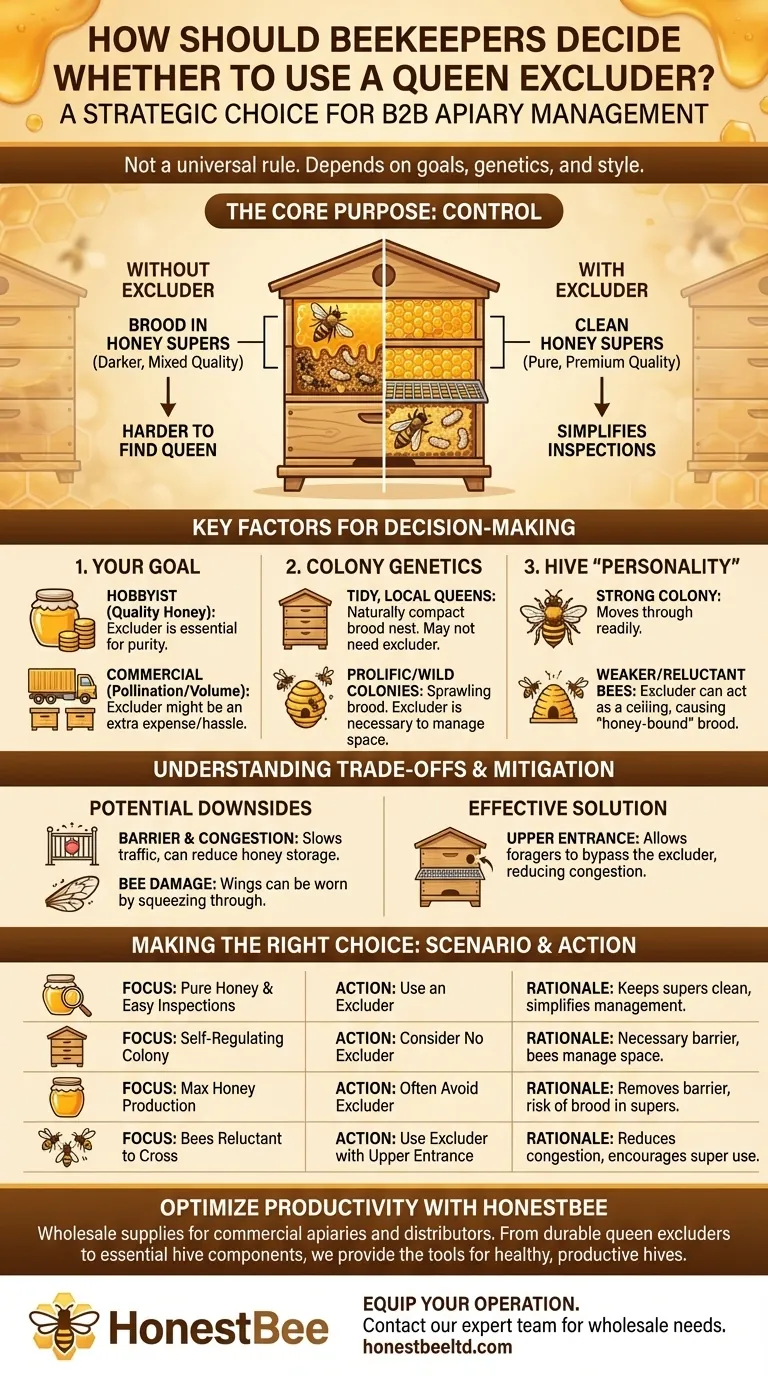
Related Products
- Professional Plastic Queen Excluder for Modern Beekeeping
- High Performance Plastic Queen Excluder for Beekeeping and Apiary Management
- Premium Wood Framed Metal Wire Queen Bee Excluder
- Wooden Queen Bee Excluder for Beekeeping
- HONESTBEE 6 Frame Three Use Electric Honey Extractor for Beekeeping
People Also Ask
- What are the typical designs and materials of a queen excluder? Choose the Best Gear for Your Apiary Efficiency
- How does a queen excluder facilitate the production of high-quality commercial honey? Ensure Purity & Efficiency
- What is the significance of using queen excluders in tropical bee management? Boost Honey Purity & Colony Stability
- How do queen excluders assist in the management of honey production? Optimize Your Harvest Purity and Efficiency
- What is the core function of a Queen Excluder in royal jelly production? Boost Yields with Behavioral Management


